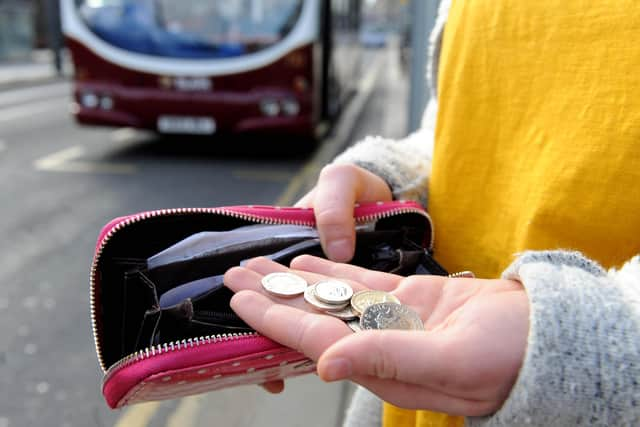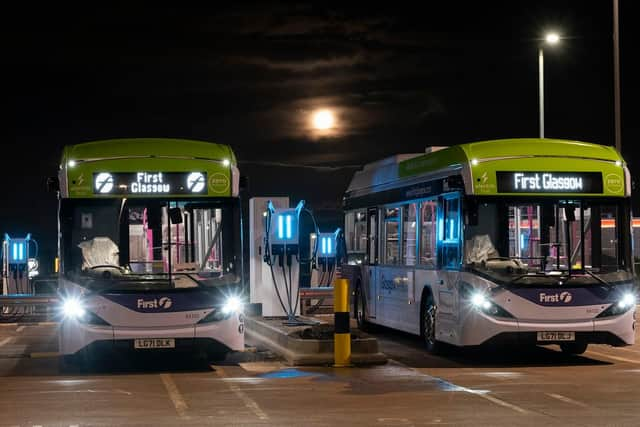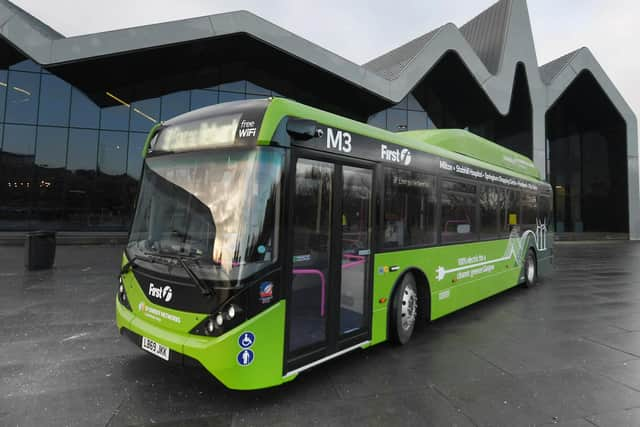End ‘eye-watering’ bus fares with £2 cap - Gordon Brown’s Our Scottish Future think tank
Our Scottish Future (OSF) also told Scotland on Sunday it was also calling for government funding to be doubled by being diverted from road building to create a "massive" new fleet of electric buses to cut emissions and encourage more drivers to switch from cars.
The group called for an end to the “unjust” two-tier system in which the over-60s and under-22s enjoyed free bus travel, irrespective of their income, while the lowest-paid workers had to pay “sky-high” fares.
Advertisement
Hide AdAdvertisement
Hide AdIn a new report, Cheaper Journeys, Faster Building Scotland’s Low Carbon Transport Network, it said fares had increased by nine per cent above inflation over the last five years.


OSF said journeys up to 7.5 miles – the average trip length – should cost a maximum of £2, which would be justified by increasing the number of people travelling by bus.
The proposed cap compares to First Glasgow – the city’s main operator – charging £2.50 for a single journey in its Glasgow city zone, although OST said passengers would have to pay twice that if their trip involved taking two buses.
OSF said fares in Aberdeen cost £2.50-£2.70 on First Aberdeen and Stagecoach, and Dundee’s cost £2.30-£2.50 on Xplore Dundee and Stagecoach.
The maximum single ticket on Lothian – Edinburgh’s main operator – is £1.80.


However, OSF found higher fares elsewhere in the Central Belt, such as £4 for the 7.5-mile journey between Burntisland and Inverkeithing in Fife.
Report author Dr Pete Wood, an associate lecturer at The Open University in Scotland, said: “The real potential to help people is in the small towns of the Central Belt, Fife and the Tay.
"A lot of people live near to – but not actually within – the big cities.
"These areas tend to have lower incomes.


Advertisement
Hide AdAdvertisement
Hide Ad"They are the areas most in need of a good, reliable, inexpensive bus service, and they aren’t getting it.
“Buses are the safety net through which people who cannot drive, walk or cycle are able to get around."
A Transport Scotland spokesperson said: “We are taking forward a Fair Fares review to ensure a sustainable and integrated approach to public transport fares.
"The review, which is currently in its initial planning stages, will look at the range of discounts and concessionary schemes available, including on bus, rail and ferry.
"It will take into account the cost and availability of services, and will consider options taking cognisance of the relative changes to the overall cost of travel.”
A spokesperson for First Glasgow said its lowest fare was £1.70 for up to five bus stops and “any move to a flat fare such as in Edinburgh would see passengers pay more than they do currently for shorter journeys”.
Paul White, director the Confederation of Passenger Transport Scotland, which represents bus operators, said: “This report understates the strong work taking place between local and national government and bus operators to deliver fare-capping, open data, new partnership schemes that improve services for all, and the Scottish Government target of decarbonising half the bus fleet by 2023.”
A message from the Editor:
Thank you for reading this article. We're more reliant on your support than ever as the shift in consumer habits brought about by coronavirus impacts our advertisers.
If you haven't already, please consider supporting our trusted, fact-checked journalism by taking out a digital subscription.
Comments
Want to join the conversation? Please or to comment on this article.
